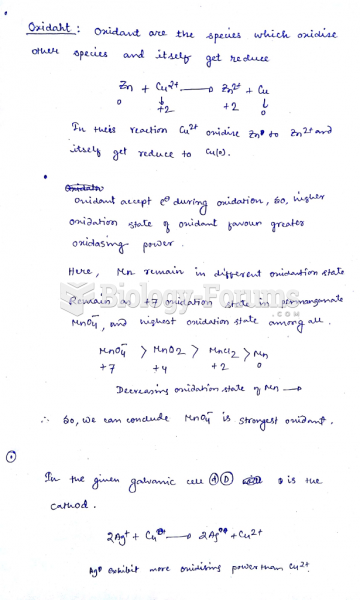|
|
|
After a vasectomy, it takes about 12 ejaculations to clear out sperm that were already beyond the blocked area.
Cocaine was isolated in 1860 and first used as a local anesthetic in 1884. Its first clinical use was by Sigmund Freud to wean a patient from morphine addiction. The fictional character Sherlock Holmes was supposed to be addicted to cocaine by injection.
The first-known contraceptive was crocodile dung, used in Egypt in 2000 BC. Condoms were also reportedly used, made of animal bladders or intestines.
Since 1988, the CDC has reported a 99% reduction in bacterial meningitis caused by Haemophilus influenzae, due to the introduction of the vaccine against it.
By definition, when a medication is administered intravenously, its bioavailability is 100%.
 Effect of pH on drug absorption: (a) a weak acid such as aspirin (ASA) is in a nonionized form in an
Effect of pH on drug absorption: (a) a weak acid such as aspirin (ASA) is in a nonionized form in an
 Effect-log dose curve for the analgesic action of three narcotics and aspirin. Hydromorphone is more ...
Effect-log dose curve for the analgesic action of three narcotics and aspirin. Hydromorphone is more ...





